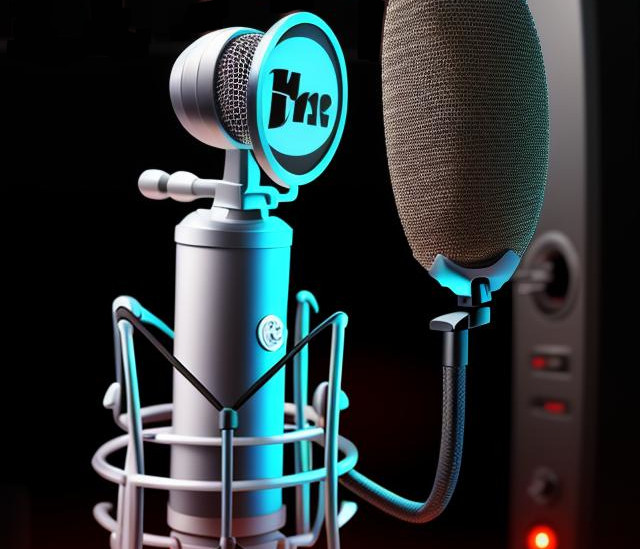As someone who understands the value of creating accessible, discoverable, and engaging content, I’d like to discuss how speech-to-text audio transcription can be a game-changer for podcasters looking to elevate their shows.
Improving Podcast SEO with Transcripts

If you have a large audio archive with many podcast shows, Speech-to-Text audio transcription can help improve your show’s search engine rankings. This is because search engines like Google and Bing can’t actually listen to or watch content – they rely on text to understand what a piece of media is about.
By including transcripts of each episode, you create an indexable text version of your podcast that can be easily searched by search engines. This means that if someone searches for a specific keyword or phrase related to your show, there’s a better chance that your content will appear in the search results.
In order to maximize the SEO benefits of transcripts, it’s important to include relevant keywords and phrases throughout the text. These should be terms that you want to rank for in search engines, and that are likely to be used by people searching for content related to your show. By including these keywords in strategic places – such as the title, subheadings, and body – you can help improve your show’s visibility and reach in search results.
However, it’s important not to overdo it with keyword stuffing or other spammy tactics. Search engines are sophisticated enough to recognize when content is being manipulated for SEO purposes, and may penalize websites that use these techniques. Instead, focus on creating high-quality transcripts that provide value to your audience and include relevant keywords naturally.
Overall, speech-to-text audio transcription can be a powerful tool for improving podcast SEO and attracting new listeners to your show. By including transcripts and optimizing them for search engines, you can help ensure that your content is discoverable by people who are searching for topics related to your show.
Leveraging Transcripts for Social Media Promotion

Transcripts can also be a valuable resource for promoting your podcast on social media platforms like Mastodon, Twitter, Facebook, and LinkedIn. By extracting quotes, statistics, or other key insights from each episode, you can create engaging social media posts that drive traffic back to your show.
For example, you might create Twitter threads with snippets of audio and transcript text that highlight interesting points from the episode. You could also create Instagram carousels with visuals that complement the transcript content, or TikTok videos with short clips and captions.
In addition to promoting individual episodes, transcripts can also be used to create social media campaigns around broader themes or topics. For example, you might compile a list of your most popular quotes on leadership or creativity, and use them to promote a series of related episodes or blog posts. By including relevant keywords and phrases in the transcript text, you can help ensure that your content appears in social media search results when people are looking for information on specific topics.
Overall, speech-to-text audio transcription can be a powerful tool for promoting your podcast on social media. By extracting key insights from each episode and optimizing them for search engines, you can create social media content that is both engaging and discoverable, potentially leading new listeners to your podcast.
Making Podcasts More Accessible

Furthermore, transcripts make podcasts more accessible to people who are deaf or hard of hearing, as well as those who prefer to read rather than listen. This is an important consideration for any content creator who wants to ensure that their message reaches as many people as possible, regardless of their abilities or preferences.
Guaranteeing Accuracy
Another benefit of using speech-to-text audio transcription is that it helps ensure accuracy when sharing quotes, facts, or figures from your podcast. When you rely on memory or handwritten notes, there’s always a risk of misremembering or misquoting something important.
Transcripts provide an accurate and reliable record of what was said during each episode, making it easy to extract and share precise quotes or statistics. This can be particularly useful for journalists, researchers, or other professionals who rely on podcasts as a source of information.
In addition to ensuring accuracy, transcripts can also help prevent misinterpretation or misunderstanding of your content. When you provide a written record of what was said, listeners can review it at their own pace and in their own words, helping to ensure that they understand the intended meaning of each point. By providing a reliable record of what was said during each episode, you can help ensure that your content is accurately represented and understood by your audience.
Expanding Your Reach with Multilingual Transcripts

If you want to reach a global audience, speech-to-text audio transcription can help you break down language barriers and make your content accessible to non-English speakers. By providing multilingual transcripts of each episode, you can ensure that listeners in different regions or with different language skills can still engage with your content.
Multilingual transcripts can be created using automated translation tools or by hiring professional translators who specialize in your industry or niche. While automated translation tools can be convenient and cost-effective, they may not always provide accurate or culturally sensitive translations. Professional translators, on the other hand, can help ensure that your content is translated accurately and with cultural nuances in mind.
By providing multilingual transcripts, you can also improve your show’s search engine rankings in different regions. When people search for content related to your show in their local language, they’re more likely to find your content if it includes relevant keywords and phrases in that language.
In addition to expanding your reach and improving your SEO, multilingual transcripts can also help build trust and credibility with non-English speaking listeners. By providing accurate and culturally sensitive translations, you can demonstrate your commitment to inclusivity and accessibility, potentially leading to increased loyalty and engagement from non-English speaking audiences. By providing multilingual transcripts of each episode, you can ensure that language barriers don’t prevent listeners from engaging with your show.
Investing in Speech-to-Text Audio Transcription Services
Overall, speech-to-text audio transcription is a powerful tool that can help podcasters create more accessible, discoverable, and versatile content that resonates with their audience and drives business results. Whether you’re just starting out or looking to take your show to the next level, consider investing in transcription services to unlock the full potential of your podcast.

Comments
2 responses to “Podcast Audio Transcription: Why It Matters for Accessibility, SEO, and More”
[…] The Transcription tool, powered by Whisper.cpp, can transcribe and translate words and output them as a label track. If you have a large audio archive with many podcast shows, also check out our article about Podcast Audio Transcription. […]
[…] optimize the efficiency and accuracy of your interview or podcast transcription process, start by focusing on the quality of your audio recordings. Invest in […]